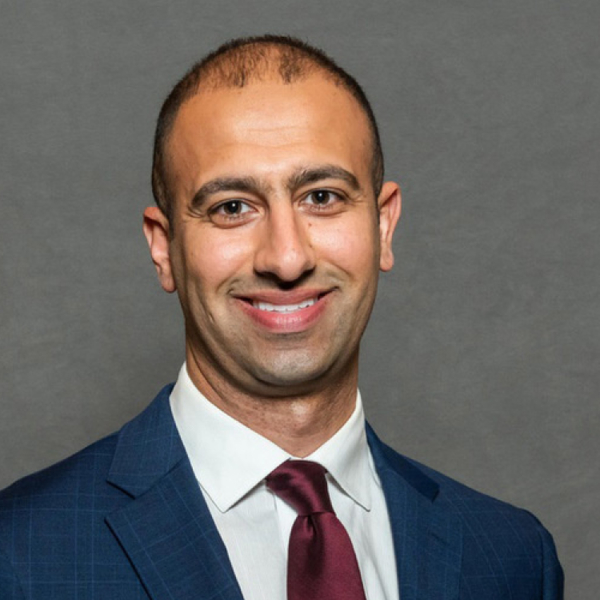AMIA 2022 Linking Informatics and Education Academic Forum Conference (LIEAF)
November 7-8, 2022 | Washington Hilton Hotel
AMIA's Academic Forum aligned the 2022 LIEAF Conference with the AMIA 2022 Annual Symposium. LIEAF will offer attendees an opportunity to learn state-of-the-art methodologies and best practices in education, research, and training.
Frequently Asked Questions
How Do I Register for LIEAF?
LIEAF is included in the AMIA 2022 Annual Symposium registration, and there is no extra fee or registration process necessary to attend LIEAF sessions.
Academic Forum Members who do not plan to attend the AMIA Annual Symposium can still attend LIEAF sessions free of charge. Academic Forum Members who plan to only attend LIEAF must contact Michelle Martin prior to attending.
Who Can Attend LIEAF?
The AMIA Academic Forum invites all 2022 Annual Symposium attendees to attend. LIEAF is designed for faculty and staff who are committed to professional growth and the growth of their programs. Meeting sessions are for multidisciplinary, inter-professional informatics professionals at all levels of academic informatics.
LIEAF sessions will be prepended with LIEAF in the AMIA 2022 Annual Symposium Program Guide.
Call for Participation
The call for participation is now closed.
The AMIA 2022 Linking Informatics and Education Academic Forum Conference (LIEAF) will be organized around four topic areas and 40 keywords. Classify content based on our set of topics and keywords through a competitive submission and review process.
- Collaborations and Interprofessional Education
- Curriculum and Program Management
- Professional Development and Training
- Strategies for Teaching and Learning
Presentation Types
Workshop proposals should propose a two-hour session emphasizing hands-on instruction to improve attendees’ understanding or performance in a specified area. The proposal should describe the target audience (including assumed background and prerequisites), the qualifications of the instructors, and the nature of the hands-on activities.
Abstract submissions are not to exceed a maximum of four pages in length and must include:
- The names, academic degree(s), affiliations, and locations (city, state/province, and country, if international) of all instructors.
- An opening summary of 250 to 300 words that describes the content of the workshop which should also be entered into the abstract text box in Step 1 of the online form in the ScholarOne system. Please keep in mind that this paragraph will be used in the online and print programs, so please write it accordingly.
- An outline of topics to be covered.
- An indication of the level or combination of levels of the content (percentage of basic, intermediate, and advanced material covered).
- A description of prerequisites, if any.
- Experience of instructors in teaching similar content.
- Faculty lead will submit the abstract proposal – each presenter must create a profile in the ScholarOne submission database and provide disclosure at submission time.
Ignite-style talk proposals are for a timely, provocative, and creative five-minute talk addressing a hot topic in informatics education, training, or research. Ignite-style talks will contain exactly 20 slides, 15 seconds each, that will be automatically advanced.
For example, the presentation can:
- Describe research or an activity
- Tell a story
- Promote a new program
- Advocate for a policy initiative
- Illustrate a lesson learned
- Offer a strong opinion
- Provide advice
Ignite Format Rules
- Your Ignite talk will contain exactly 20 slides, 15 seconds each, that will automatically advance.
- You must use the AMIA Ignite PowerPoint slide template provided by AMIA.
For samples of both how to give an Ignite talk and for examples see:
Your uploaded Ignite-style manuscript file must be formatted to fit a 1-page (8.5 x 11 inch) document and must include:
- The names, academic degree(s), affiliations, and locations (city, state, and country, if international) of all authors.
- All presentation submissions must have a brief (50-75 words) abstract. The abstract does NOT have to be part of the document but must be entered on the submission website in the Abstract box in Step 1 (please DO NOT copy and paste the entire one-page document into that box). This text is used for program description so please be attentive to wording.
- A description of your presentation and an outline of your talk.
Presentations provide an opportunity to disseminate scholarly information about biomedical informatics education. Presentations will be up to 20 minutes, including Q&A, and may be based on published or unpublished material. Acceptable models for presentations may be individual or joint presentation. The presenter(s) reserves publication rights for future consideration. Submissions cannot be under consideration at, or previously presented at, other conferences.
The main body of the abstract submission must be formatted to fit on a 1-page (8.5 x 11 inch) document and must include:
- The names, academic degree(s), affiliations, and locations (city, state, and country, if international) of all authors.
- The abstract on one page in “IMRAD” format: Introduction, Methods, Results; Discussion, and Conclusion.
- One optional page (second) may be included for figures or tables and references.
- All presentation submissions must have a brief (50-75 words) abstract. The abstract does NOT have to be part of the document but must be entered on the submission website in the Abstract box in Step 1 (please DO NOT copy and paste the entire one-page document into that box). This text is used for program description so please be attentive to wording.
- The faculty lead will submit the abstract proposal. Each presenter must create a profile in the ScholarOne submission database and provide disclosure at submission time.
Panels provide an opportunity for an extended exploration of a topic by the panelists. A panel proposal should describe the topic to be explored and an argument as to why this topic is timely, urgent, needed, or attention-grabbing. Further, the proposal should describe why the participating panelists are germane to this topic. Panels must be 1 hour in length, and Q&A is included in this time. Panels can be a didactic or interactive panel (4 individuals with one moderator), or a “speed-dating” type presentation by several individuals.
Your uploaded panel manuscript file must not exceed a maximum of three pages (8.5 x 11 inch) and must include:
- The names, academic degree(s), affiliations, and locations (city, state, and country, if international) of the panel organizer and all participants.
- Disclosures of relevant financial relationships with commercial interests (this is Step 5 of the individual’s profile) for all instructors. All instructors must create a profile in the online submission system).
- An abstract of 150-200 words, describing the panel and its learning objectives, which should also be entered into the Abstract text box in Step 1 of the online form to be used in the online and print programs.
- A general description of the panel and the issue(s) that will be examined and a brief description of each panelist's presentation.
- A list of possible discussion questions to enhance audience participation.
- An explanation of why the topic of this session is timely, urgent, needed, or attention-grabbing is required along with a discussion of the anticipated audience.
- A statement from the panel organizer that all participants have agreed to take part on the panel.
- The faculty lead will submit the abstract proposal. Each presenter must create a profile in the ScholarOne submission database and provide disclosure at submission time.
Possible panel topics include:
- Discussion of a topic of emerging importance to the clinical informatics community
- Exploration of experiences including challenges in professional collaboration, unintended consequences, ethical dilemmas, or legal judgements because of the application of informatics
- Exploration of novel technologies or applications that have the potential to be disruptive to the science or application of clinical informatics
- Discussion of political, societal, ethical aspects of health information technology, clinical informatics, or recent technical developments
Interactive demonstrations provide the opportunity to demonstrate computer tools/environments for education. Proposals for interactive demonstrations should describe how the tools/environments are used in an educational setting. Presenters must provide their own computer equipment for the demonstration. Each demonstration is 30 minutes long, Q&As are included in this time.
Your uploaded interactive demonstration manuscript file must be submitted as a one-page (8.5 x 11 inch) document and must include:
- The names, academic degree(s), affiliations, and locations (city, state, and country, if international) of all presenters.
- Disclosures of relevant financial relationships with commercial interests (this is Step 5 of the individual’s profile) for all instructors. All instructors must create a profile in the online submission system.
- An abstract of 150-200 words summarizing the proposal, which will also be entered into a text box at the beginning of the online form to be used in the online program. The abstract does NOT have to be part of the document but must be entered on the submission website in the Abstract text box in Step 1. Please DO NOT copy and paste the entire one-page document into that box.
- A description of how the tools/environments are used in an educational setting.
Keywords
- Accreditation
- Active Learning
- Authentic Assessment
- Baccalaureate/Undergraduate Programs
- Career Advancement
- Certificate Programs
- Certification
- Competencies
- Competency-based Learning
- Curriculum Development
- Data Science
- Developing Teaching Skills
- Diversity
- Doctoral Programs
- Educational Collaboration
- Faculty Development
- Fostering innovative Thinking
- Industry Collaboration
- Industry Training
- Instructional Design
- Internships and Practicums
- Interprofessional Education
- Interprofessional Informatics
- Leadership
- Master’s Programs
- Online Education and Training
- Organizational Spanning
- Pedagogy
- Personalized Learning
- Post-doctoral Programs
- Professional Identity Formation
- Project-based Learning
- Research Training
- Student Engagement
- Student Pipelines
- Students and Community Engagement
- Teaching for Transitions
- Teaching Innovation
- Teams and Teams Science Approaches to Informatics Education
- Workforce Development
Scientific Program Committee

Aarti Chandawarkar, MD, FAMIA

Damian Borbolla, MS, MD

Sue Feldman, RN, Med, PhD

Josette Jones, PhD, RN, FAMIA

Saif Khairat, PhD, MPH, FAMIA

LaVerne Manos, DNP, RN-BC, FAMIA
